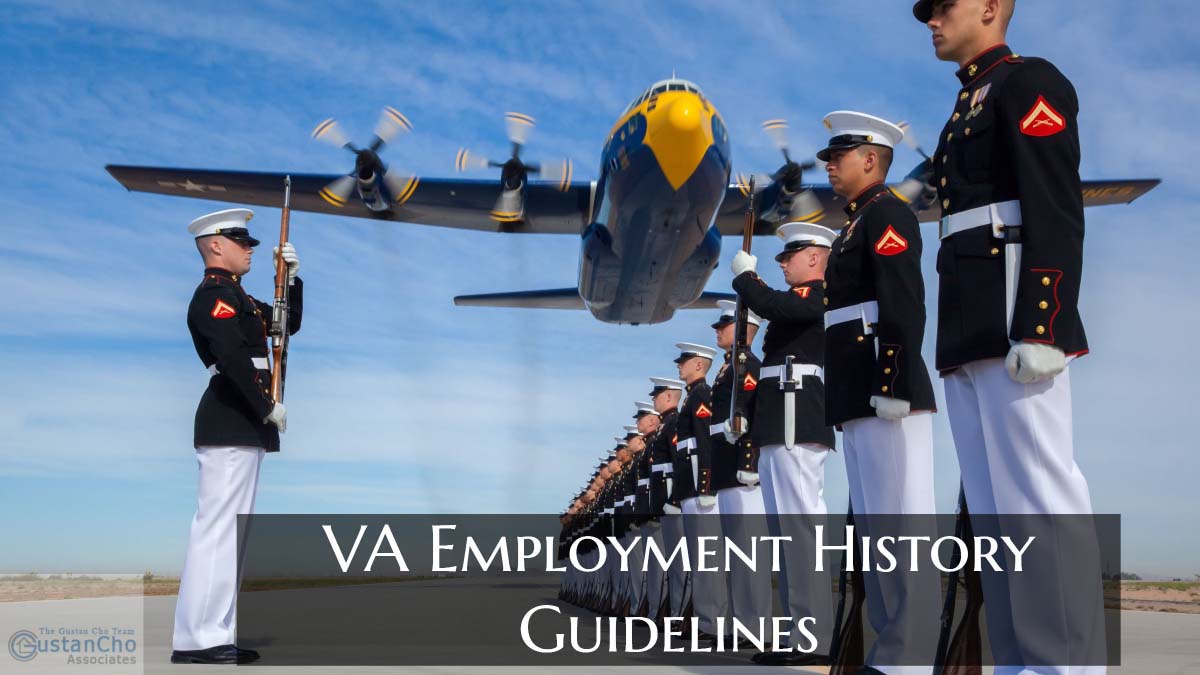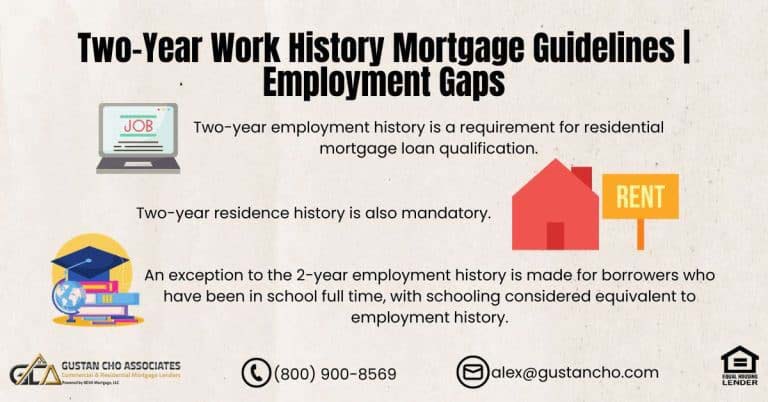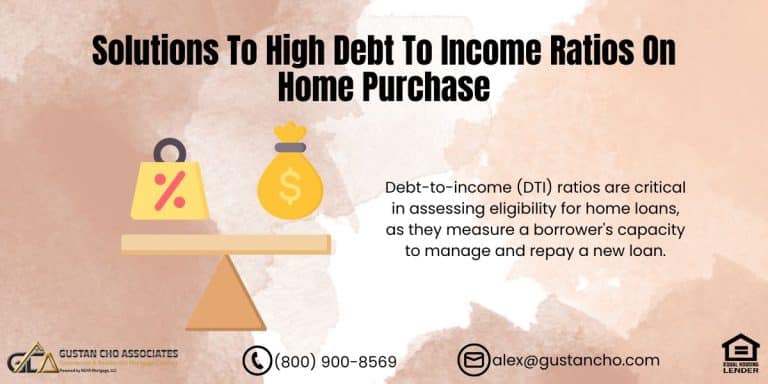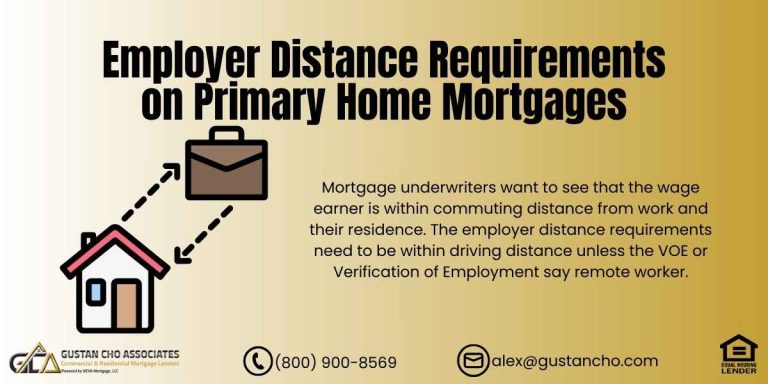This guide covers VA employment history guidelines on VA loans. VA loans is the best loan program in the U.S. Unfortunately, not everyone can qualify for VA home loans. To be eligible for VA loans, borrowers need to be either an active member of the U.S. military and/or a veteran of one of our armed services with a Certificate Of Eligibility (COE). Dale Elenteny says the following about VA employment history guidelines:
Providing thorough documentation and explanations for those with less traditional employment paths can help demonstrate financial stability and readiness to manage a mortgage.
VA employment history guidelines to qualify for VA loans are similar to other loan programs. One of the mandatory requirements to qualify for a residential mortgage loan, whether it is VA, USDA, FHA or Conventional, mortgage lenders require a 2 year employment history. However, VA, USDA, HUD and Conventional mortgage guidelines do not require that borrowers have been continuously employed by the same employer for the past 2 years.
VA Employment History Guidelines versus Other Loan Programs
HUD, Fannie Mae, Freddie Mac, VA, USDA all require borrowers provide a 2 year employment history on mortgage application. Under VA employment history guidelines, veteran home buyers can have gaps in employment. Employment gaps is allowed as well as multiple jobs in the past 2 years. John Strange says the following about VA employment history guidelines:
Many veteran borrowers are told by banks, credit unions, and mortgage bankers that they do not qualify for VA loans because they have not had been employed for two years by the same employer.
This can be true for a bank, credit union, mortgage banker, or other mortgage lender who have their own criteria, called lender overlays. Overlays are lending requirements that surpasses the minimum federal lending guidelines that is set by FHA, VA, USDA, Fannie Mae, and Freddie Mac. Portfolio and non-conforming lenders can have their own set of rules and lending criteria called overlays for their borrowers.
VA Employment History Guidelines Versus Overlays
In general borrowers needs to provide 2 year employment history. If borrowers has been unemployed for a period of time, the employment history prior to the mortgage applicant’s unemployment needs to be provided. Here is case scenario on veteran borrowers case scenario:
- If borrower has been unemployed for more than six months.
- Found a new full time job after six or more months of unemployment.
- Under VA Employment History Guidelines, veteran home buyers needs to be in his new full time job for at least six months in order to qualify for VA Home Loan.
- If veteran home buyer has been unemployed for six or less months and has gotten a new full time job, then the buyer will qualify for VA Loan with no waiting period.
- However, cannot close on VA Loan until 30 days of paycheck stubs have been provided to the mortgage lender
- Written offer employment letter is required.
- Written Verification of employment stating that the mortgage applicant’s job stability will likely to continue for the next three years will be required.
Here is a case scenario of 2-year employment history per VA employment history guidelines:
- Veteran home buyer gets a new job.
- Has been on the job for at least six months.
- But has been unemployed for one year prior to getting a full-time job.
- Then 18 months of past employment history needs to be provided prior unemployment status.
Veteran? Know the Employment Rules First
VA loans have flexible employment history guidelines that can help you qualify faster.
Overview of Employment History Requirements
The Department of Veterans Affairs (VA) does not directly provide loans but guarantees loans from private lenders. To secure this financing, veterans must meet specific employment history requirements designed to demonstrate income stability and reliability, which are crucial for managing ongoing mortgage payments.
Key Employment History Guidelines
Stable and Reliable Income:
- Two-Year Requirement: Lenders generally prefer seeing at least two years of consistent employment history. This shows that the borrower has a stable and reliable source of income. However, this is not a rigid rule, and exceptions may be granted depending on the overall robustness of the loan application.
- Employment Gaps: Short gaps in employment are not automatic disqualifiers. Lenders may accept explanations for these gaps, such as education or military service, provided the borrower has returned to steady employment.
Income from Various Employment Types:
- Salaried Employees: Regular salary from ongoing employment is viewed favorably because it suggests a stable future income.
- Self-Employment and Freelancing: Lenders generally ask for two years of tax returns to confirm income stability for self-employed or freelancers.
- Part-Time and Secondary Jobs: Income from part-time or secondary jobs can be included if it has been consistent for at least two years and is expected to continue.
- New Employment: If recently employed, a borrower might need to provide a job offer letter or recent pay stubs to prove the job’s stability and income reliability.
Verification Process:
Lenders will verify employment by requesting the most recent pay stubs, W-2 forms from the past two years, and tax returns if self-employed. Another way is through Direct Verification where employers may be contacted to confirm employment status and salary.
Why Do Lenders Have Overlays on Longevity on Job?
Mortgage lenders like to see job longevity. This because statistics prove that longevity on a job means job and income stability and security. Many lenders view job hoppers as unstable with regards to job security and income stability. All lenders want to see that borrowers have been in the same job for at least the past two years.
What they want to see and the real reality is different. Again, HUD ( Parent of FHA ), VA, USDA, Fannie Mae, Freddie Mac do not require 2 years of employment history where borrowers need to be with the same employer.
All they require is 2-year employment history. Employment gaps and multiple jobs are allowed. Borrowers told that you do not qualify for VA Home Loan by a bank, credit union, or mortgage company because they do not have 2-year employment history from the same employer, find a different mortgage company with no overlays. Lenders check these things to be sure you can make the monthly payments without putting too much strain on your finances. A strong employment history reassures lenders that you have the means to keep the loan in good standing.
VA Employment History Guidelines FAQ
How Long is “Steady Employment”?
Lenders typically want to see **two years of steady work** in the same field or similar work. Gaps are okay if you explain why you left and show you’re back on track.
What if I’m a New Veteran and Just Started a Civilian Job?
Your military service counts toward your history. If you switch to a civilian job right after the military, lenders will accept that as long as the new job has a pay stub or offer letter.
Does Part-Time Work Count?
Yes, part-time or seasonal work can count, but the lender will look closely at it. You should show a history of at least two years in that part-time job to prove it is steady.
What if I’m Self-Employed or a Contractor?
Self-employed borrowers can still qualify. You must show **two years of tax returns, schedules, and a profit-and-loss statement**. Lenders want to see that your self-employed income is consistent and documented.
How Do Bonuses and Overtime Work?
Bonuses and overtime can be counted as income if they have a history of at least two years and are expected to continue. Lenders typically want these incomes documented on your pay stubs and W-2 forms.
What if I Had a Brief Job Change or Layoff?
A brief change or layoff is usually okay when a new, steady job is followed. You must explain what happened and show that your current income can support the loan. Gaps of less than six months are often treated leniently.
Do Military Allowances Count as Income?
Yes, tax-free allowances like a housing allowance or cost-of-living adjustments can be counted, as long as they are documented and expected to continue for at least three years.
Do I Need a Co-Borrower if My Income is Low?
A co-borrower is not required, but if your income is low, you may want one to boost the loan amount. Co-borrowers should also have steady employment and good credit.
New Job or Career Change?
Find out how VA underwriters view your employment history when applying for a VA loan.
General VA Employment History Guidelines
The Two-Year Rule
Lenders usually like to see two years of steady employment. You don’t have to be with the same company, however. What they look for is:
You have stayed in the same type of work.
- Your income has either stayed the same or gone up.
- You can demonstrate that your job is likely to continue.
Job Changes
If you switch jobs, you aren’t automatically disqualified. A change within the same field, or a move that raises your pay or makes your position more secure, is often viewed as a positive step.
Employment Gaps
If you have a break in your work history:
- Less Than 6 Months: Generally okay if you can explain it.
- More Than 6 Months: You should show you have been back on the job for at least 6 months and provide proof that your new position is secure.
Special Cases Under VA Employment Guidelines
Recently Discharged Veterans
Have you just finished active duty? Your military service works as your job history. If you’re employed now, lenders will often accept that even without two complete years of civilian work.
Self-Employment
For veterans or spouses who run their own business:
- Lenders usually ask for two years of business tax returns.
- Sometimes, one year will work, especially if you are already in the same field before starting your business.
Part-Time or Seasonal Work
Part-time or seasonal jobs can count as stable income if:
- You’ve held the job for at least two years.
- Your employer expects the job to keep going.
Education and Training
Time spent in school, apprenticeships, or vocational training can replace job history, as long as it helped you land your current position.
Probationary Periods
If you’re finishing a probation period, it can still count. Lenders will usually check that your employer plans to keep you on once the probation ends.
Documentation Needed for Employment History
To prove your work history, lenders might ask for:
- A Verification of Employment (VOE) form that your employer fills out.
- Recent pay stubs from the last month.
- W-2 forms from the last two years.
- Tax returns if your income varies or if you work for yourself.
- A letter explaining any time you were not employed.
- Collecting these items ahead of time can help move your VA loan along faster.
How VA Employment History Rules Affect Your Loan Approval
The VA doesn’t need a perfect work record. They understand that veterans and service members often switch jobs, move out of the service, or have unusual pay.
For example:
- A service member who spent six years on active duty and then landed a civilian gig can qualify for a new job in just a few months.
- A spouse who stayed home for years but recently returned to work can get approved if the current job is steady and the paperwork is in order.
This relaxed approach is one reason VA loans are often the easiest to get compared to conventional and FHA loans.
Tips to Boost Your VA Loan Approval
- Keep records of every source of income.
- Describe any job breaks clearly and truthfully.
- You should show that your current job will continue for the long term.
- Avoid switching jobs before applying, unless the new job offers better pay or greater job security.
- Work with a lender like Gustan Cho Associates. We have no VA lender overlays, so we follow VA guidelines only, without any added rules.
FAQs: VA Employment History Guidelines for VA Loans
How long must I be employed to get a VA loan?
- Lenders typically like to see two years.
- However, your military service, education, or training may count in place of job history.
Can I qualify for a VA loan if I just got a new job?
- Yes.
- You can qualify if the new job is in the same field or offers stronger job security.
Will employment gaps stop me from getting a VA loan?
- Not usually.
- Gaps shorter than 6 months typically won’t be a problem.
- If the gap is longer, you may need to prove that you are back at work and likely to stay employed.
Does my military service count as employment history?
- Yes.
- Military service is a solid, stable employment record for VA loan purposes.
What if I’m self-employed?
- You must provide two years of tax returns to show your income when you’re self-employed.
- If you have solid related work experience, one year of returns may satisfy the requirement.
Can I qualify for a VA loan with part-time work?
- Yes, as long as you’ve had that part-time job for at least two years, it’s likely to continue.
Do probationary jobs count as employment?
- Yes, probationary positions count.
- Have your employer write a letter stating that your job will continue after the probation ends.
What papers prove my job history?
- You will need current pay stubs, W-2 forms, a Verification of Employment form, tax returns, or a letter explaining anything unusual.
Can I get a VA loan with less than 2 years of civilian work?
Yes, especially if your military service or education directly helped you land this civilian job.
Do VA lenders have extra employment rules?
Some lenders add their own rules, but Gustan Cho Associates does not. We adhere to the official VA standards so you won’t face extra hurdles with us.
The VA employment history rules for VA loans were made to adapt to the real lives of veterans and service members. Suppose your work history doesn’t quite hit the two-year mark. In that case, we still consider stability in military service, training, or job skills related to the civilian world.
At Gustan Cho Associates, we’re committed to helping veterans and their families get VA loan approvals when other lenders turn them away. If you’re ready to move closer to your new home, our team is here to walk you through every step.
Secure Your VA Loan With Confidence
We break down VA employment history guidelines so you know exactly what to expect.
Frequently Asked Questions (FAQs)
What are the employment history requirements for a VA loan?
- Generally, VA lenders look for at least two years of consistent employment history.
- However, this can differ based on the lender and particular situations.
Is it possible to qualify for a VA loan with frequent job changes?
- Yes, frequent job changes do not automatically disqualify you, especially if you’ve stayed in the same field or industry.
- Lenders primarily want to see stability and the likelihood of continued employment.
What if I have gaps in my employment?
- Gaps in employment can be acceptable, particularly if they are short and you can explain them.
- Lenders may require a letter of explanation for periods of unemployment.
Does my type of employment matter when applying for a VA loan?
- While the type of employment does not generally affect eligibility, lenders look for reliable, consistent income.
- This can be from salaried positions, self-employment, commission-based jobs, or military benefits.
How do lenders verify my employment for a VA loan?
- Lenders verify your employment by requesting recent pay stubs, W-2 forms, or tax returns.
- They may also directly contact your employer.
Can I use income from a new job to qualify for a VA loan?
- Yes, income from a new job can be considered.
- Still, you should provide a job offer letter or recent pay stubs to prove the employment is stable and likely to continue.
What if I’m a seasonal or temporary worker?
- Seasonal or temporary workers can qualify for a VA loan if they show two years of consistent seasonal employment or if their income is stable and likely to continue.
How is self-employment income treated for VA loan qualification?
- To establish income stability, self-employed individuals must typically provide two years of tax returns.
- Lenders may also require a profit and loss statement for the current year.
What about part-time employment?
- Part-time employment can be considered if you have held the part-time job for at least two years, and the income is expected to continue.
Final Thoughts on VA Employment History Guidelines
Understanding the VA employment history guidelines on VA loans helps you see why lenders ask what they do. By keeping your job, finding a good replacement, and documenting everything, you’ll set yourself up for smooth VA loan approval.
Moving from service to homeownership is the next step, and a strong employment track record is a big boost to getting there fast.
Even though VA loans offer more flexibility than many other loan options, lenders still need assurance that you can repay. Because of this, the VA employment history guidelines on VA loans play a key role during underwriting. Understanding and meeting the VA’s employment history requirements is critical for veterans and active service members seeking to leverage the benefits of VA loans. A stable and reliable income, evidenced through consistent employment or a clear pattern of income over two years, is key to approval.
Getting Qualified and Approved for a VA Loan with a Lender with No Overlays
Veterans considering applying for a VA loan should prepare by organizing all relevant employment documentation and consulting with a VA-approved lender to review their employment history and any potential issues in their application. Gustan Cho Associates no mortgage overlays on VA loans. Veteran Borrowers who need to qualify for VA loans with a direct lender with zero overlays on VA home loans, please contact us at Gustan Cho Associates at 800-900-8569 or text us for faster response. Or email us at gcho@gustancho.com.
Don’t Let Job Changes Delay Your VA Loan
Discover how recent employment, gaps, or self-employment are reviewed by VA lenders.











Working with Chase, they want me to pay a 6yr debt. Need another option. Closing date is 30 days out